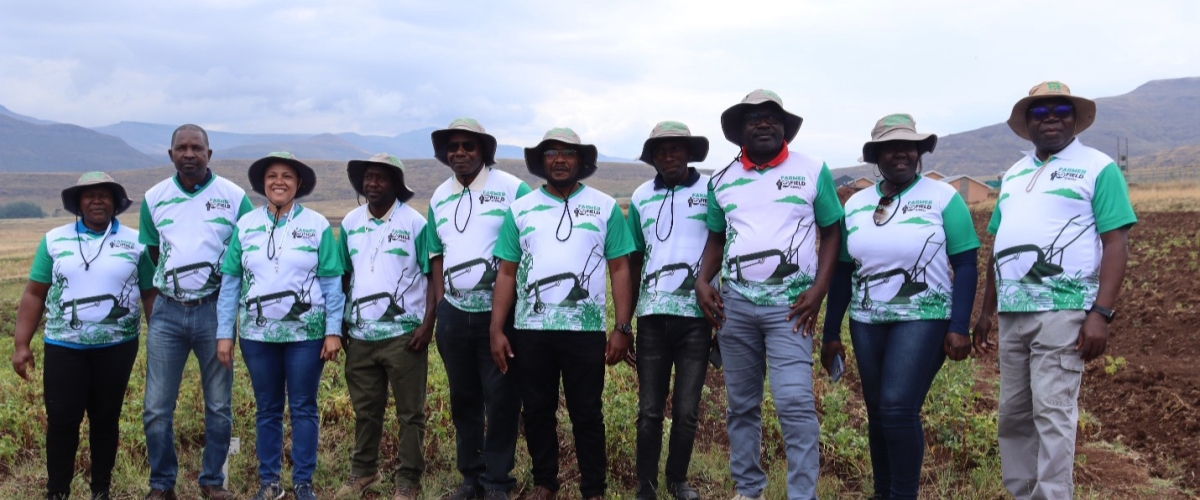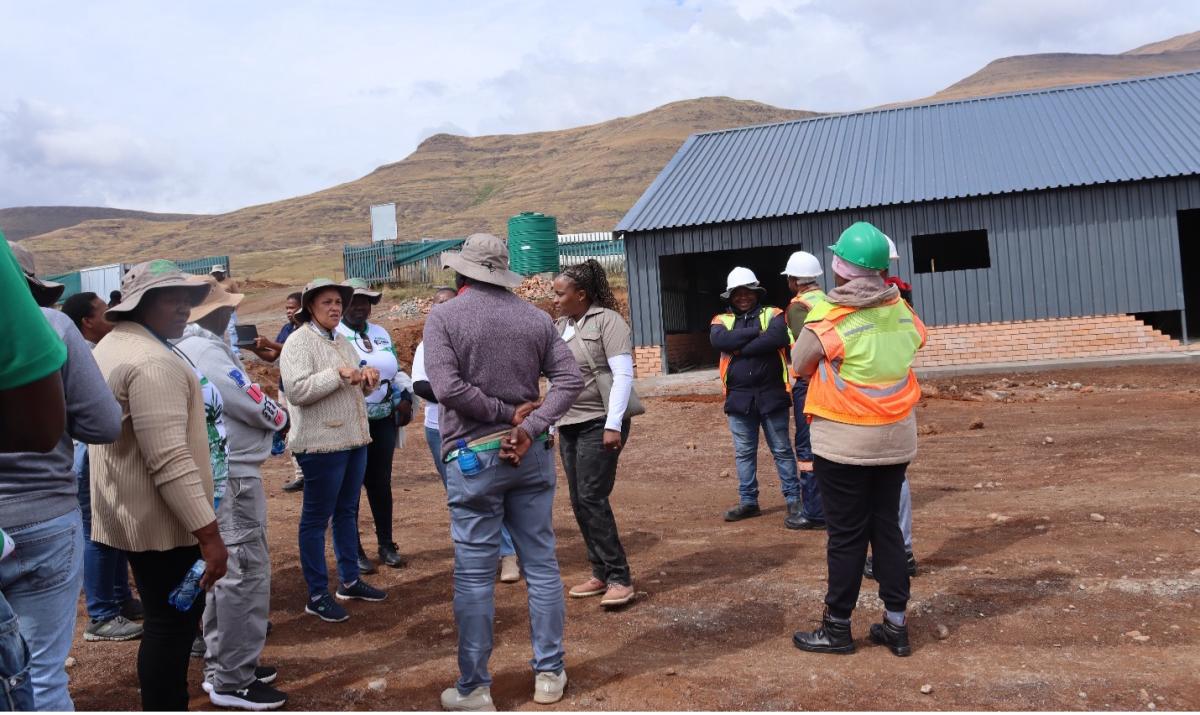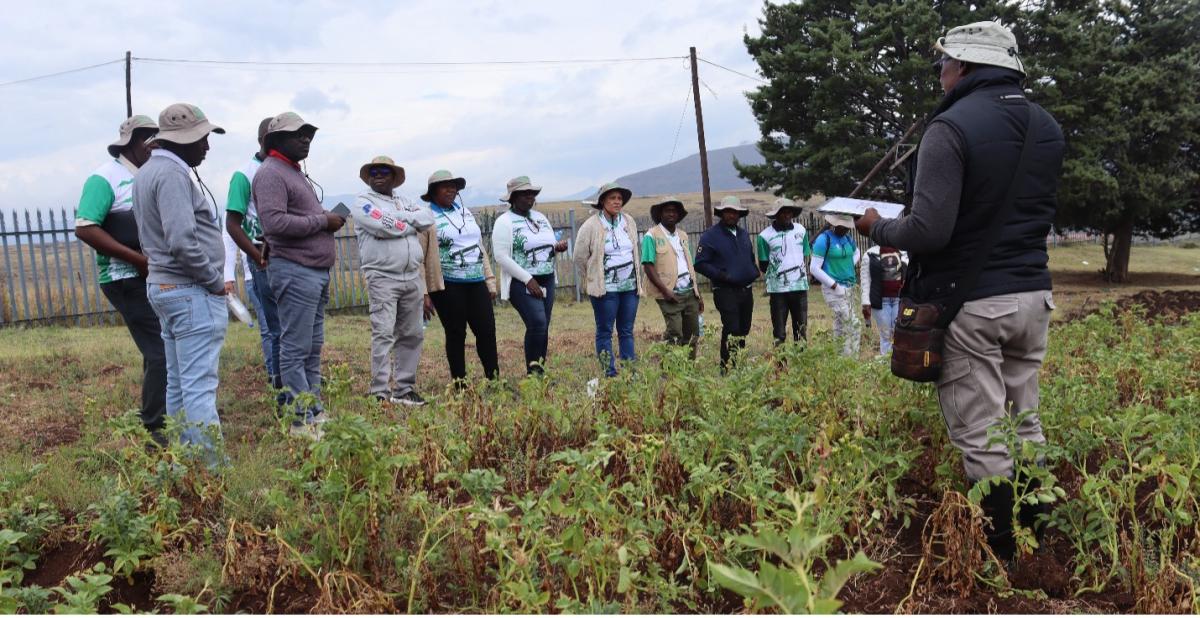
Scientists from the Mountain Kingdom of Lesotho leading Research and Development (R&D) sub-projects under the Agricultural Productivity Programme for Southern Africa (APPSA), hosted their counterparts from the Republic of Angola in an exchange visit from 25th to 29th March 2024 to share experiences, strategies and further engage on discussions regarding their ongoing collaborative research activities. The Angolan delegation, led by the Cassava Regional Centre of Leadership Coordinator, Dr Moniz Paulo Mutunda, comprised of eight Scientists, a Monitoring and Evaluation Specialist as well as a Safeguards Specialist.
APPSA is a six-year World Bank funded initiative based on collaborative implementation of Research and Development (R&D) subprojects and currently supporting Lesotho and Angola to establish regional centers of leadership on commodities of regional importance. Lesotho is focusing on horticulture and horticulture-based farming systems while its counterpart Angola is focusing on cassava and cassava-based farming systems. The Centre for Coordination of Agricultural Research and Development for Southern Africa (CCARDESA) oversees the regional implementation of this programme.
The Director of the Department of Agricultural Research, Dr Lefulesele Lebesa, welcomed the delegates from Angola upon arrival. Dr Lebesa highlighted that the exchange visit marked yet another APPSA milestone. She asserted that the scientists from the two collaborating countries (Angola & Lesotho) are sharing scientific agricultural research knowledge on the commodities of interest in their countries.

On behalf of the of Angola delegation, Dr Mutunda noted that more interactions between the collaborating scientists is of paramount importance for enhancing the quality of research. Speaking on behalf of Lesotho Scientists, Dr Pitso Masupha, expressed his gratitude to APPSA Angola and Lesotho as well as CCARDESA for making this exchange visit possible. He indicated that a similar visit was undertaken Scientists from Lesotho where the shared experiences benefited the participants.
During a workshop held for the Scientists on the second day, highlights were provided on the reporting requirements; categorization of technologies; end of project assessment; information for the development of a compendium of technologies and impact stories; discussion of the processes of technology release, and expected documentation.

The delegates also visited different sub-projects led by APPSA Lesotho, providing an opportunity to Scientists from the two countries to interact more intensively. More light was shed on a variety of crops that were introduced from one country to the other. An example is pearl millet that was introduced for the first time Lesotho but very common in Angola. The scientists also had an opportunity to visit some construction sites supported by the project, such as the Main Agricultural Research station in Maseru and the regional station in Mokhotlong.
The effective interaction between scientists from both Angola and Lesotho was a clear indicator that collaborative research work in African countries could be a leeway for good quality agricultural production.
Source: Department of Agricultural Research (DAR) of the Kingdom of Lesotho





